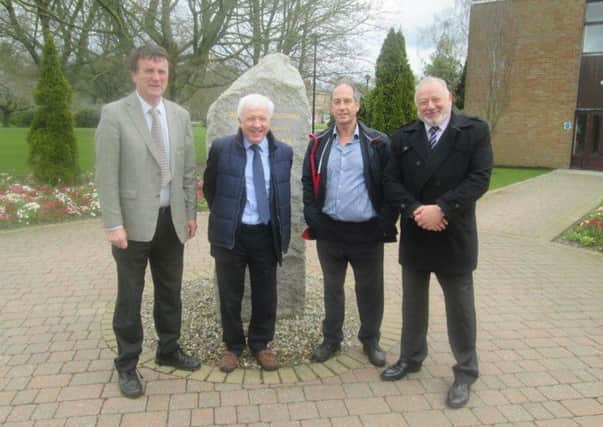Greener landscapes with best practice


The event addressed topical issues of interest and relevance to all involved in the amenity sector.
Staff and other interested parties from golf courses, landscape contractors, city and district councils and training organisations attended the programme of presentations, which covered topics of direct relevance to those using pesticides in the amenity sector.
Advertisement
Hide AdAdvertisement
Hide AdProfessor John Moverley, Chairman of the Forum, also chaired the event and welcomed the opportunity to involve Northern Ireland businesses in the programme. He gave an overview of the Amenity Forum’s purpose and the event’s training objectives. John also emphasised how public perception of spraying against weeds, pests and diseases underline the importance of good decision making when considering such control options. This led into a discussion of the training and competence development available for professional users through BASIS and NPTC facilitated by Peter Corbett, BASIS Registration.
Mr Nigel Chadwick of the Chemical Regulations Directorate presented the latest information on how current legislation and product approvals impact on agricultural production practice, and how greater attention is now being directed towards pesticide use in non-food situations i.e. public and private green spaces. This leads to even more scrutiny on application practice, so that responsible treatments are a vital component of protecting product approvals in the longer term.
Mr Ian Forman from the National Sprayer Testing Scheme outlined the need not only for all professional operators to be qualified themselves, but also to use only equipment which has been professionally tested through the NSTS. This becomes a legal requirement from 26 November 2016 and applies to all trailed and seated sprayers with boom width greater than 3m and older than five years. Ian directed the audience to the NSTS website for details of the testing scheme and centre locations throughout the UK.
NI Water undertake exhaustive treatment protocols to ensure safe, pure drinking water throughout NI and this includes the removal of any residues using expensive filtration equipment. Mr Roy Taylor of NI Water gave a comprehensive presentation on the serious implications from soil runoff where agrochemicals are applied in poor weather or field conditions and appealed to the meeting to take professional advice on best use of such materials appropriate to the problem and situation.
Advertisement
Hide AdAdvertisement
Hide AdTo conclude the meeting, staff from DARD’s Plant Health and Horticulture Inspectorate provided guidance on the current threats to countryside flora from plant pests and diseases, including ash dieback and sudden oak death. A new mobile App called ‘Tree Check’ is now available for the public, which allows users to inform DARD of suspected incidents of disease on trees anywhere and pinpoints the location via GPS. Colin Fleming, from the Agri-Food and Biosciences Institute (AFBI) gave a very informative talk about the incursion of pest nematodes (microscopic worms) into Irish sports turf situations and the need for pitch managers and players to remain vigilant for the symptoms.
Those attending benefited from a valuable range of topics, while the questions posed and final discussion session evidenced their interest in comparable events being organised for the future.